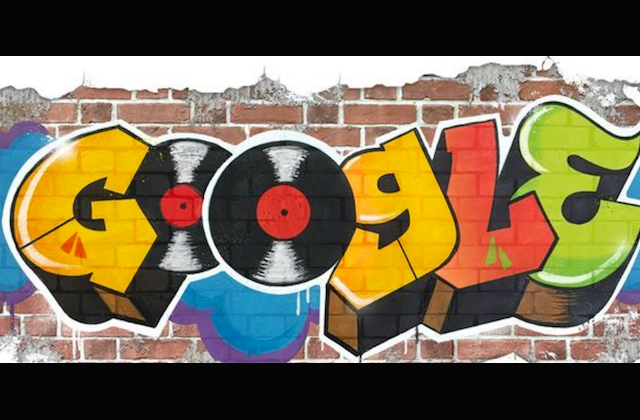Celebrate Hip-Hop's 44th Birthday With Google's DJ Simulation Doodle

The last half-century's most significant pop culture development started 44 years ago today (August 11), when DJ Kool Herc—inspired by the sound systems of his native Jamaica—lit up a Bronx block with looped instrumental breaks. Google celebrates the birth of hip-hop in the still-predominantly Black and Latinx borough with today's interactive Doodle.
44 yrs & still going strong! Celebrate the #BirthofHipHop w/ interactive turntables & legendary tracks #GoogleDoodle→https://t.co/VsTUgsW13W pic.twitter.com/FQWs4x6uqV
— Google Doodles (@GoogleDoodles) August 11, 2017
Designed by veteran graffiti artist Cey Adams, today's Doodle features an animated retelling of that moment, narrated by early rapper and hip-hop ambassador Fab Five Freddy:
On August 11, 1973, a DJ named Kool Herc threw a back to school party in the Boogie Down Bronx that changed music as we know it. Using two turntables, he extended the instrumental breaks, allowing people to dance longer, a style that became known as breakdancing. Next came the MC, or master of ceremony, who added rhymes over the beat to get the party going and flowing.
In the years since DJ Kool Herc's first party, hip-hop culture has become a major force across music, dance, art, fashion and a whole lot more. On this historic anniversary, we're inviting you to join the celebration and be the DJ with two turntables and a crate full of hot records. Come on, y'all, let's get this party started!
Freddy then guides users through the DJ simulation, which lets users set the tempo of drum beats and instrumentals from records like Betty Wright's "Clean Up Woman" and The Isley Brothers' "Between the Sheets," which were sampled in MC Mike and DJ Mazey Maze's "Can't Get Enough (Of That Funky Stuff)" and the Notorious B.I.G.'s "Big Poppa," respectively.
Freddy talks more about hip-hop's 44-year evolution in an accompanying Google blog interview with him, Adams and Google staffers Kevin Burke, Ryan Germick and Perla Campos—all of whom were involved in the Doodle's creation:
The essence of hip-hop culture at its base is like an algorithm—it can be done in any language and by any nationality out there, and when done right, it grows exponentially. From the very beginnings in the '70s, this culture was generated by those who had very little, and took those bare essentials to say, "I'm here, I matter." And that has reverberated continuously for decades. So I don't like to think of old school vs. new school, I'm a "now school" person. Hip-hop marches on—it will always reinvent itself.
Flex your DJ skills at Google.com.
